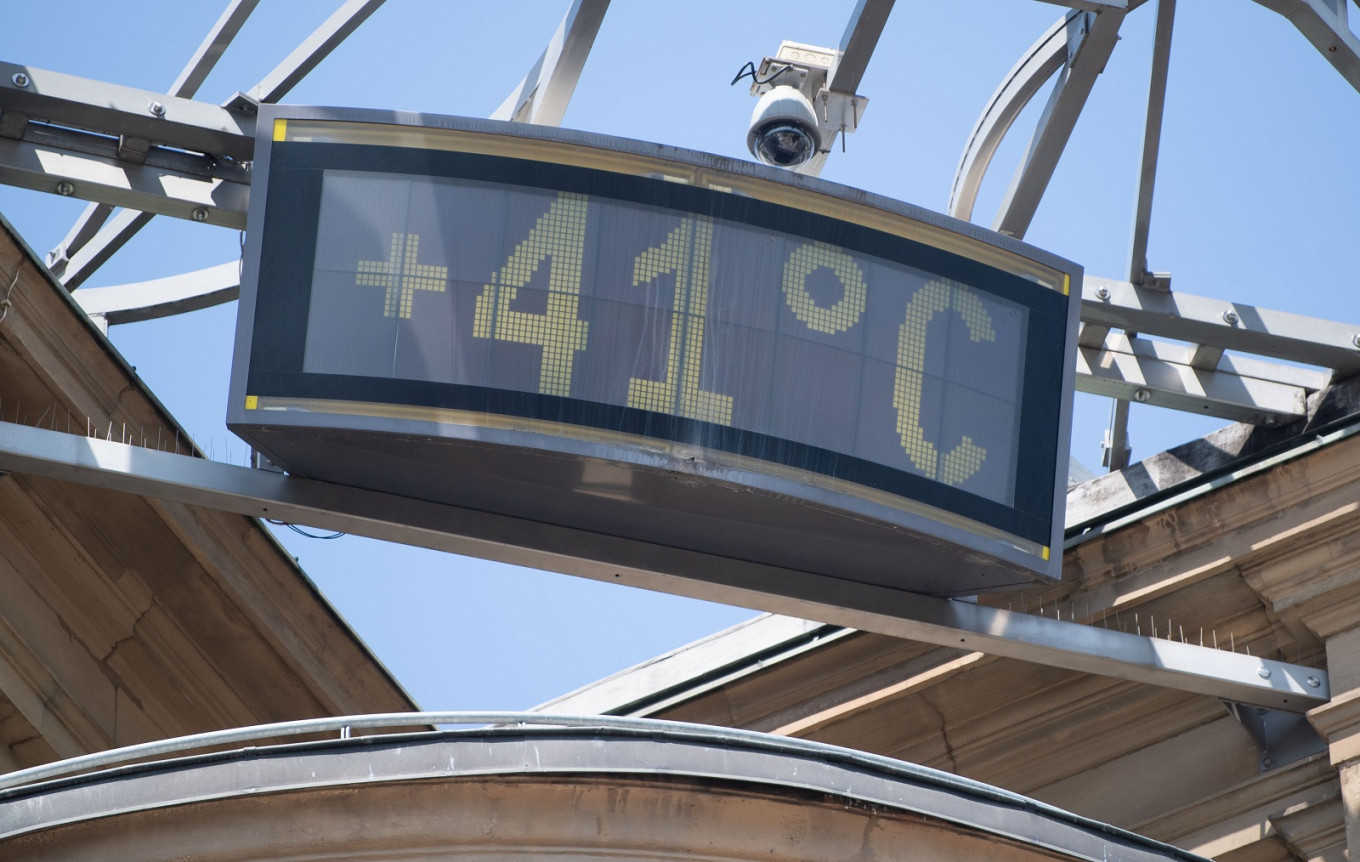Popular Reads
Top Results
Can't find what you're looking for?
View all search resultsPopular Reads
Top Results
Can't find what you're looking for?
View all search resultsGet used to record-breaking heat because it’s here to stay
Change text size
Gift Premium Articles
to Anyone
U
nprecedented warming will dominate the coming decade, according to a new study, which said every year is likely to rank among the planet’s 10 hottest.
Global temperatures are already consistently breaking records, with 2016 the warmest ever followed by 2019, data from the World Meteorological Organization show. That trend is likely to continue through 2028 with a 75% chance that every year will feature in the top 10 hottest of all time, according to the study submitted to the Bulletin of the American Meteorological Society.
While there could be some cooler years because of natural variability, they’re unlikely to disrupt the broader global trend for rising temperatures, according to the analysis, which sees a more than 99 percent chance that most years in the next decade will rank in the top 10 of all time.
Read also: Think the heatwave was bad? Climate already hitting key tipping points
The study, which analyzes temperature fluctuations in National Oceanic and Atmospheric Administration data since 1975, will add to growing alarm over global warming and the impact of climate change on the planet. Just last week, the Copernicus Climate Change Service reported that January this year was Europe’s hottest.
“It would likely take an abrupt climate shift for even a few years within the next decade to register outside the top 10 warmest years,” the authors of the study, including NOAA climate scientist Anthony Arguez, wrote. “This is a testament to the exceptional warmth experienced over the last few decades, punctuated by the last four years.”
Because of the annual fluctuations, the authors of the study recommend that global monitoring analysis incorporates a “temperature score” of 1 to 10 in order to differentiate warmer and colder years relative to the long-term trend. According to their analysis, 2016 and 2015 would have a score of 10 while 2018 would rate 5.











